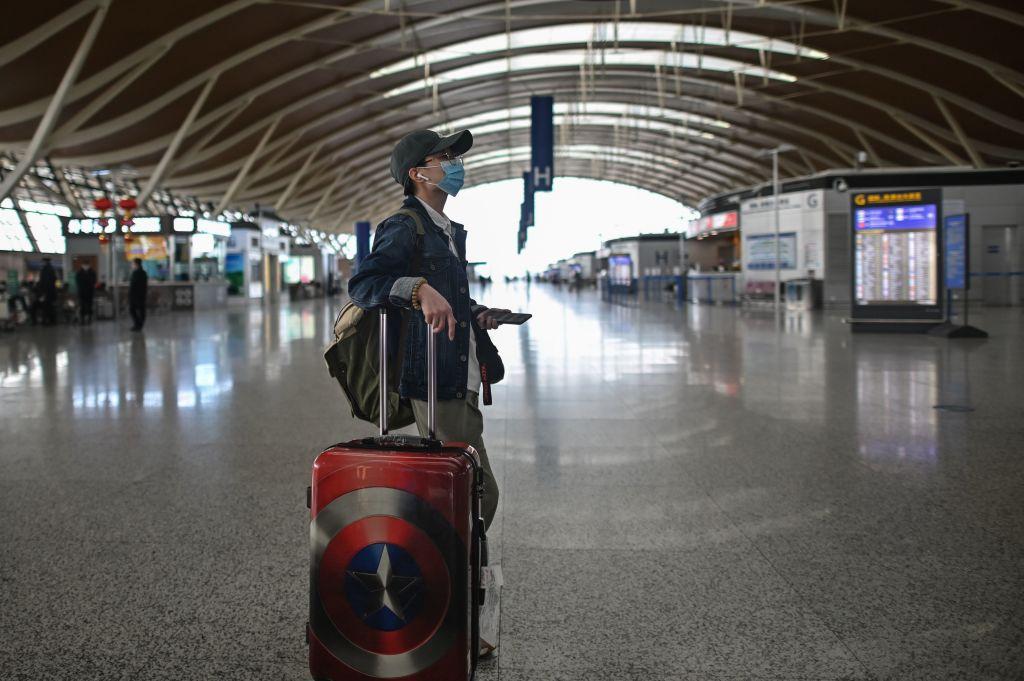Nature has sent us a terrible warning about our future – the fossil fuel industry is over
The climate column: The coronavirus threatens potentially 1 per cent of humanity, exacting a terrible price on the elderly and the vulnerable – just like the climate emergency is exacting a terrible price on the future of our young people, writes Donnachadh McCarthy


Extraordinary! A tiny microscopic organism was able to achieve what thousands of peaceful arrests, millions of protesters and decades of campaigning had failed to do.
All across the world, the roar of aeroplanes has been silenced, replaced by a hushed natural silence. Birdsong can be heard again. All over the world, the incessant droning of busy roads has ceased, and the frantic consumerism devouring what is left of nature has evaporated.
Just a week ago, I was railing about the Tarmac budget, in which the UK chancellor boasted about the £27bn being poured into surfacing another 6,500 kilometres of new roads, and the tax cuts he had given to more than 80 per cent of UK flights. More roads, more cars, more planes and more consumption was the message. Totally ignored was the message from the UN secretary general issued in September 2018, calling for radical cuts in CO2 emissions by the end of 2020 and warning that humanity faced an existential threat.
Just like world leaders ignored the urgent call to act on pandemic preparedness from the World Health Organisation (WHO) in September 2019.
However, in no way could I have imagined that, just a fortnight later, all of the chancellor’s environmental insanity would lie in ruins. Instead of a Tarmac budget, the virus has imposed a global budget for nature. In two short weeks, the aviation industry was on its knees begging for a state bailout. The car manufacturing industry was in mothballs and even the mighty oil barons had the gall to demand yet more massive subsidies to keep the North Sea oilfields pumping.
The coronavirus threatens potentially 1 per cent of humanity, exacting a terrible price on the elderly and the vulnerable – just like the climate and ecological emergencies are exacting a terrible price on the futures of our young people, future generations and nature herself.
For years, I have felt appalled at the destruction my generation was wreaking on our climate and the natural world in our selfish pursuit of material wealth. Yet, that same lethal selfishness manifested among many younger people over the past week as they continued partying and playing despite the knowledge that refusing to physically distance themselves was a lethal threat to those over the age of 70 or those suffering from underlying health conditions. Sadly, ignorance and callousness are not the preserve of any one generation.
Over the past year, the warnings from nature to us have been getting louder and louder: global wildfires, drastic droughts and floods, unprecedented plagues of locusts, melting ice-caps. But just as the WHO warnings on potential pandemics arising out of our wild-animal food markets and destruction of nature were ignored, so the UN warnings on climate apocalypse are being ignored.
With the coronavirus, nature is sending us the loudest warning yet. And goodness knows she has shown extraordinary forbearance with the destruction our single species has wreaked on all others. Having destroyed over 83 per cent of the natural world since humanity first started experimenting with agriculture and establishing “civilisation”, nature is finally giving us a tiny taste of the global devastation we have wreaked on almost every other species of animal and plant that co-occupies this extraordinary planet.
So how should we heed this existential warning? First of all, we must of course do all we can to protect the lives of the elderly and vulnerable now threatened by the virus, but we must also ensure that the economic support and actions taken to protect them are not endangering future generations. There cannot be a dirty brown bailout this time. Once the crisis has passed, a green stimulus will be crucial.
Humanity now has to focus on the essentials: how do we provide food, shelter, health, nature and community in a manner that is in balance with the ability of the Earth to support these, without destroying the ability of all other species of animal and plant to do likewise? Let us protect the workers in the old fossil-fuel economy. Let us fund the new green economy and train them for the new skills needed for it. But we must not rescue the destructive fossil-fuelled corporations that they work for, with billions of pounds of taxpayers’ money, unless they contractually commit to immediately working for the zero-carbon economy that the science dictates we need within five years or earlier.
We must finally understand that those industries pose an existential threat, not just to the 1 per cent threatened by this virus but literally to all of humanity and what is left of nature. If the banks want yet another massive bailout, it must be illegal for them to provide a single additional penny in loans for the old fossil-fuel economy.
It is possible to both protect the elderly and vulnerable from the worst of the Covid-19 crisis and protect the younger and future generations from the existential crisis posed by the old dirty fossil-fuel economy. The terrible price being paid right now by the elderly and vulnerable must not be in vain. Fossil-fuelled “business as usual” is over. The time for game-playing on climate and ecological destruction is over.
If we act now, at this pivotal moment, a beautiful green phoenix could emerge from a terrible catastrophe.
Donnachadh McCarthy is an environmental auditor, campaigner and is the author of ‘The Prostitute State – How Britain’s Democracy Has Been Bought’
Join our commenting forum
Join thought-provoking conversations, follow other Independent readers and see their replies
Comments